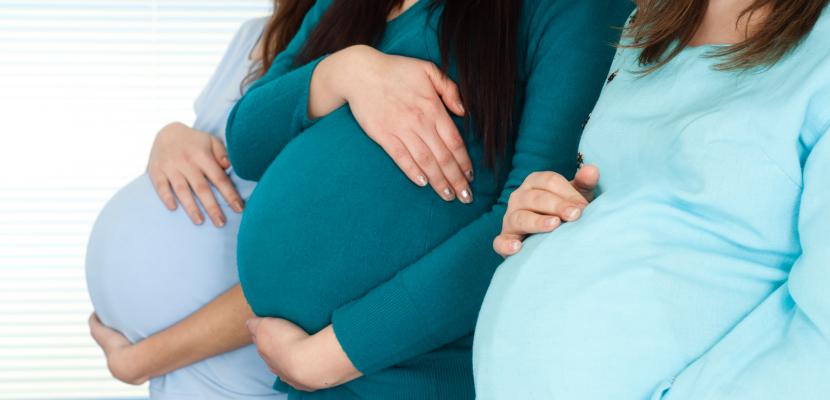
A Bond University team has launched an extensive research project involving 60 pregnant women and 120 new mothers to ascertain the effectiveness of SRC Shorts on the management of prenatal and postnatal pain.
Physiotherapist and Bond PhD Student Jaclyn Szkwara and Bond University Professor of Physiotherapy, Dr Wayne Hing, are undertaking these studies to gauge if wearing SRC Pregnancy Shorts, a specific compression garment, reduces a number of issues involved with prenatal and postnatal pain.
“The aim of the research is to evaluate the use of the pregnancy shorts on prenatal management of pain including pelvic girdle pain, lower back pain and vulval varicosities from gestational weeks sixteen to 31," said Mrs Szkwara.
"It will also assess the effectiveness of the SRC Recovery Short on postnatal pain as associated with caesarean delivery and vaginal delivery, as well as a decrease in the separation of the abdominal muscles within 6 to 8 weeks of delivery.
“The project consists of two groups in the prenatal study; an intervention group receiving physiotherapy treatment and wearing the compression garments and a control group only receiving the physiotherapy treatment.
"The postnatal study will involve four groups, with three - vaginal delivery, caesarean delivery and rectus abdominis diastases - being treated with physiotherapy and the compression garment, and a control group receiving physiotherapy only.
“A minimum of 30 women will be required for each group and once participants sign-up they will be given the option to either go into an intervention group wearing the compression garments and receiving physiotherapy, or a group receiving physiotherapy only.
“The participants will be monitored for six to eight weeks.”
Recruitment for participants in the study will be conducted at Gold Coast University Hospital (GCUH) and through the Bond Institute of Health and Sport (BIHS), along with the facilities of maternity care providers.
“Participants will complete functional capacity questionnaires, monitor and comment in a diary on their temperature at allocated intervals while wearing the shorts and rate their pain using a numeric pain rating scale,” said Mrs Szkwara.
“They will be required to complete these forms on-line fortnightly.”
Mrs Szkwara said compression garments have been widely studied in areas such as deep vein thrombosis (DVT), varicose veins, leg oedema and sports, but the use of compression garments and their effectiveness during pregnancy and postnatal has not been researched.
“There is a gap in the evidence surrounding the use of compression garments in prenatal and postnatal populations and we want to determine the effectiveness and feasibility of such use,” said Mrs Szkwara.
"We believe research in this area may be able to provide more conclusive and sound evidence, to help direct clinicians on the effectiveness of compression garments in the care of patients both during pregnancy and shortly after the birth of their child."
Any women wishing to participate in these studies should contact Mrs Szkwara at: [email protected] or 0406 764 240.